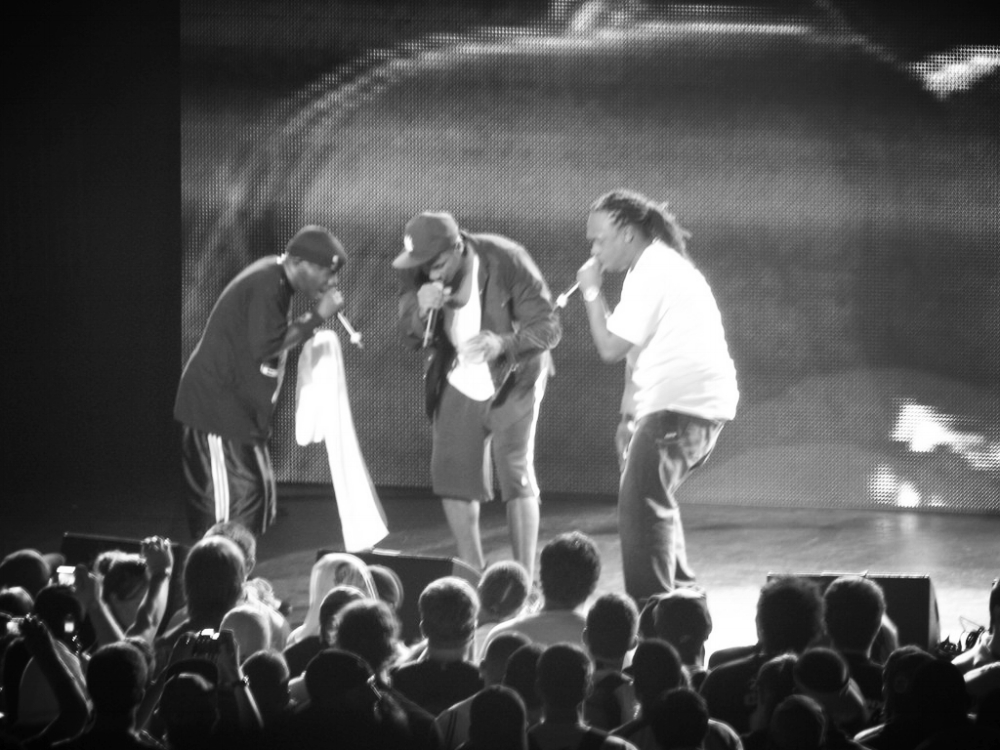A phenomenal example of the direct influence of jazz on burgeoning hip-hop.
I included this song in my DIS project, and to honor the recent passing of A Tribe Called Quest's founding member Phife Dawg, we'll use this as the first potential teaching example — one that clearly demonstrates jazz music intertwining with rap music, as ATCQ did so very well.
As a part of my DIS project, I included a list of popular music songs that incorporate samples directly from jazz music, i.e. music that students would otherwise be learning about in the secondary instrumental classroom. Many of the songs I found that sampled jazz as such would fall under the category of old school hip-hop, most of them rap songs from the late 1980s & early 1990s. A Tribe Called Quest's "Verses from the Abstract" is no exception.
“Verses from the Abstract” - A Tribe Called Quest
Overview: A sample from Joe Farrell and a performance from Ron Carter make this song a stellar teaching example.
Intro: One of the most influential hip-hop groups of the early 1990s, A Tribe Called Quest made it known clearly that they were heavily influenced by jazz. On The Low End Theory , the album on which “Verses from the Abstract” appears, there is also a track titled “Jazz (We've Got)”, extolling the virtues of jazz as a genre. The group has been honored as hip-hop pioneers by both a Special Achievement Award received at the Billboard R&B Hip-Hop Awards in 2005 and a featured artist on VH1's Hip-Hop Honors in 2007.
Analysis: The group not only sampled the drum lick from Joe Farrell's “Upon this Rock” on “Verses from the Abstract” (heard from the very start of the song), they also hired legendary jazz bassist Ron Carter to play on the song. The Farrell sample and Carter’s bass playing can be heard throughout the track.
Considerations for Teaching: There are some words that might not work in a classroom setting heard throughout the song, and potentially some unsuitable subject matters discussed. The samples & Carter’s playing can be heard outside of any profanity, particularly the “roll call” sections of the song and the sung chorus. All that aside, this song is especially useful as a listening example in connecting Ron Carter's work with the Miles Davis Quartet to evolving hip-hop culture in the early 1990s.


